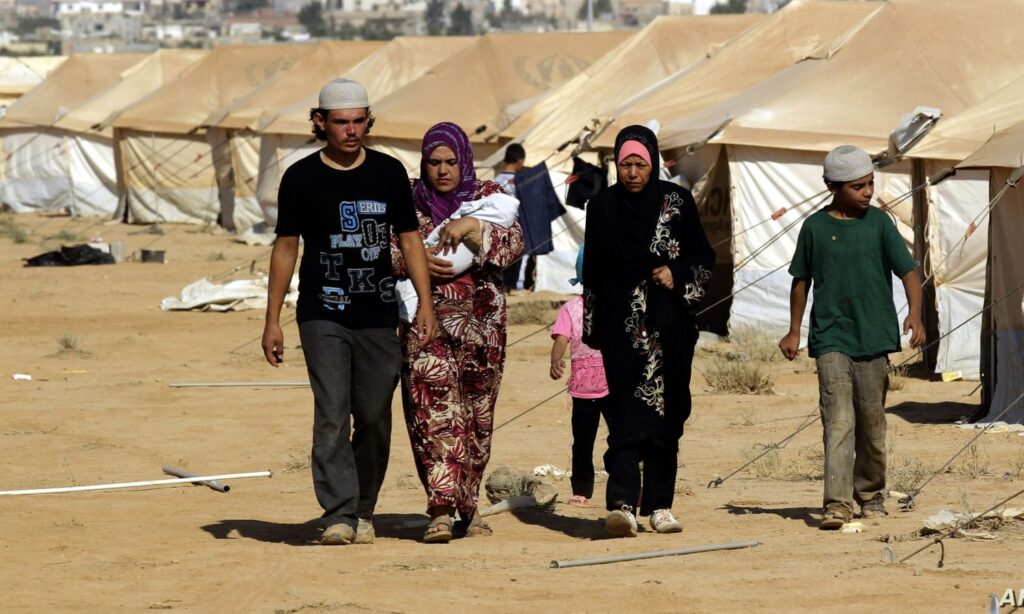The Jordanian government announced the size of its funding needs for the Syrian crisis response plan for the current year.
The Jordanian site “Al-Mamlaka” mentioned today, Monday, August 12th, that the Jordanian government has determined its funding needs for the Syrian crisis response plan for the current year to be around $2 billion, which is the “lowest amount” determined for funding the plan since its launch in 2015, amidst a decline in international support for funding the plan.
The volume of grants directed to Jordan to support the Syrian crisis response plan from the beginning of this year until the end of July reached approximately $132.83 million, representing only about 6.8% of the Jordanian Syrian crisis response plan needs for 2024, according to data from the Jordanian Ministry of Planning and International Cooperation.
The data indicated that $93.1 million was funded to support the refugee item, $39.6 million to support host communities, while the budget support item was not funded.
As for the donor countries to Jordan, the top contributors were multilateral funds with $30 million, followed by Germany with $24 million, the United States with $20.5 million, and the European Union with $19.5 million.
The volume of funding for Jordan’s Syrian crisis response plans has ranged from $2.27 billion to $2.98 billion from 2015 to last year, according to statistics collected by the Ministry of Planning and Al-Mamlaka website.
Donors have committed to financing 45.9% of Jordan’s Syrian crisis response plans since their launch in 2015 until the end of last year, where the volume of funding for the plans reached approximately $10.3 billion out of a total requirement of about $22.1 billion, resulting in an annual funding deficit of $11.8 billion, with a rate of 54.1%.
In 2023, the volume of funding for Jordan’s Syrian crisis response plan was $633.7 million out of a requirement of $2.276 billion, meaning the deficit amounted to $1.61 billion, with a rate of 29.2%.
Jordanian Foreign Minister Ayman al-Safadi expressed his dissatisfaction with the decline in international support for Syrian refugees and their host countries during his participation in the Brussels VIII Conference for the Future of Syria and the Region in Belgium at the end of last May. He described this decline as “extremely serious”.
Al-Safadi added that the international community has abandoned Syrian refugees with the diminishing necessary funding to support them in host countries, saying, “We will not be able to provide essential services to the refugees on our own, and we will continue to do all we can. Unless the international community assumes its responsibilities, services will decrease, and the suffering of the refugees will increase.”
Jordan hosts approximately 1.3 million Syrians since the beginning of the Syrian crisis in 2011, including about 625,000 Syrian refugees registered with the United Nations High Commissioner for Refugees (UNHCR).

